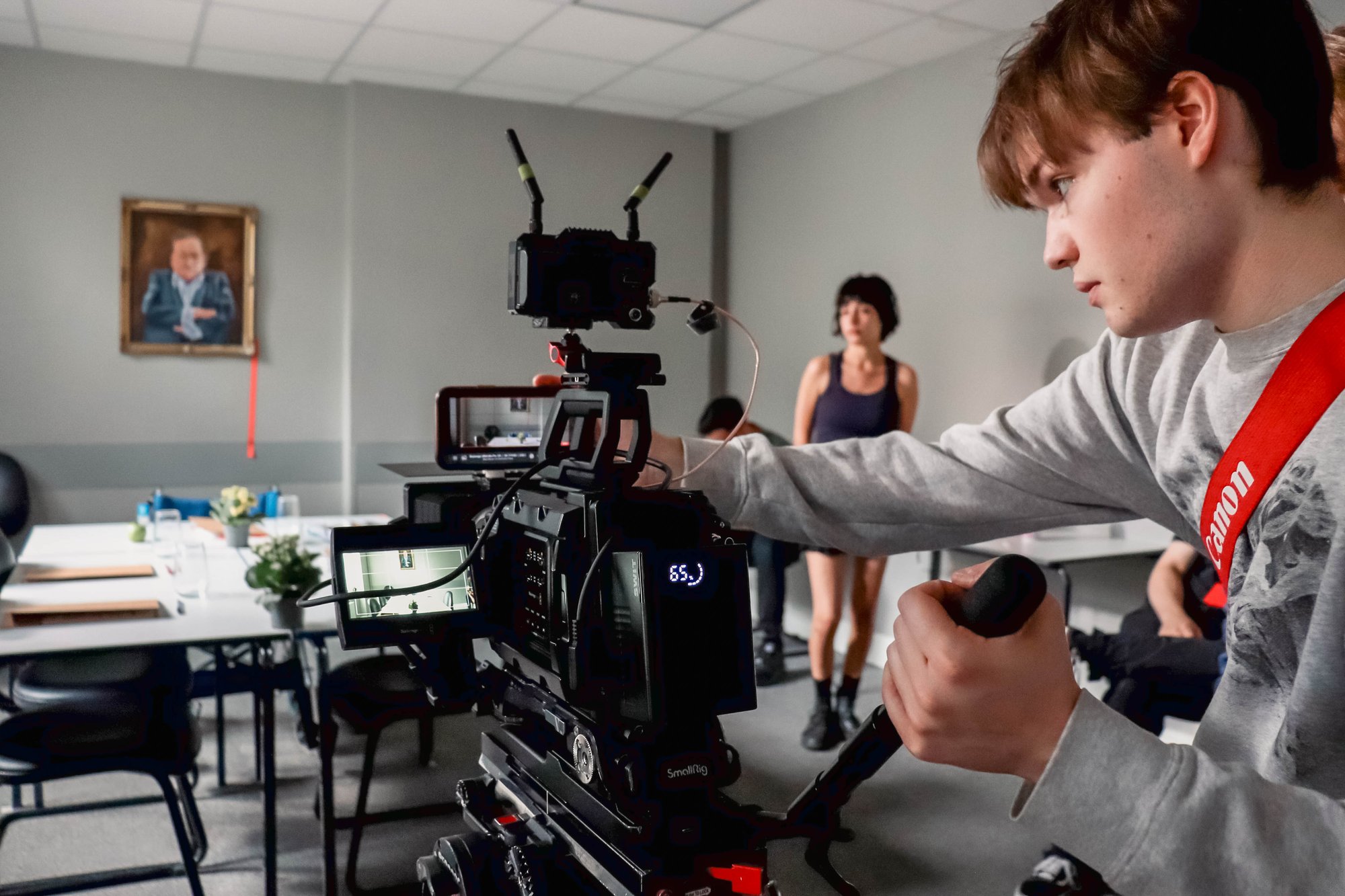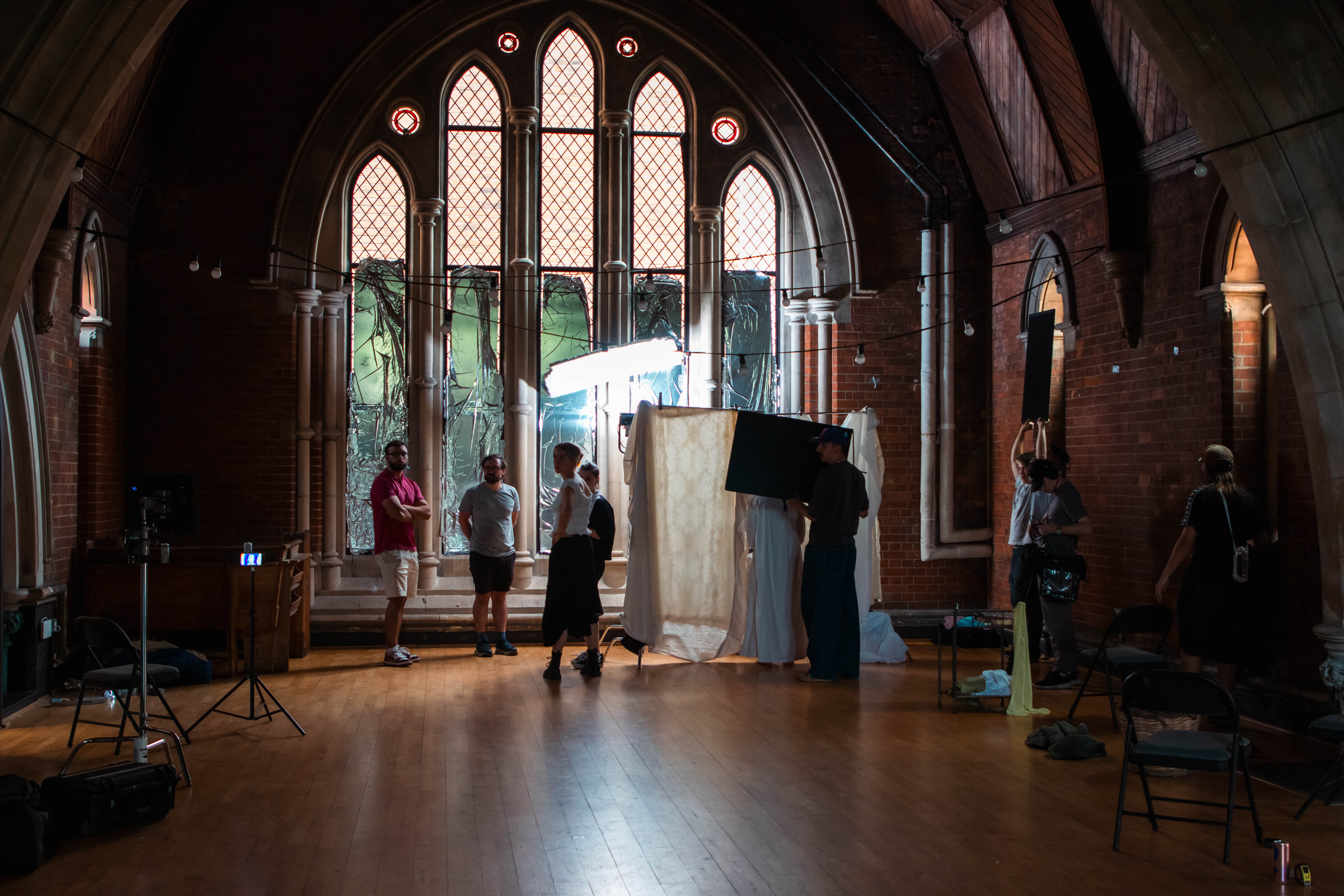If you’re not a British or Irish citizen, and you don’t already hold UK immigration permission that allows study (for example settled or pre-settled status under the EU Settlement Scheme, indefinite leave to remain, or other permission to stay), you will need to apply for the appropriate visa.
For undergraduate and postgraduate programmes, you will need to apply for a Student visa which is part of the points-based immigration system. This is true for any programmes of study longer than 6 months in the UK.
When to apply
You can begin applying for a Student visa up to 6 months before your course start date if you’re applying from outside the UK.
The School will send you an email with details on how to apply once you have accepted an unconditional offer from us.


Undergraduate and Postgraduate Programmes
Once you have satisfied all conditions of your offer, or have received an unconditional offer, the school will send you a checklist to ensure you have all of the correct documentation.
We will carefully check each document you supply to us against the points-based immigration system requirements. Before we issue a Confirmation of Acceptance (CAS), we will confirm that you:
- Have paid the fees for the first year of the programme
- Meet the English language requirements
- Have the correct financial documentation
- Have the correct academic transcripts and/or relevant experience
Once we have received your documents
Once you’ve provided all required documents, we’ll email your Confirmation of Acceptance for Studies (CAS). That email will outline your next steps and any further requirements. Please keep in touch throughout the process and let us know as soon as you receive your visa. If your application is refused by UK Visas and Immigration (UKVI), you must notify us the same day; our admissions team will advise you on the next steps.


English language requirements
Students whose first language is not English must provide recent evidence that their English language ability is sufficient for the programme(s) to which they have applied. This may be evidenced by a Secure English Language Test (SELT), such as IELTS for UKVI (Academic), or by another qualification listed on our Language Requirements page.
You will need to be at CEFR level B2 for our undergraduate and postgraduate programmes, with an overall score equivalent to IELTS 6.0 (minimum 5.5 in each band). UK Visas and Immigration (UKVI) requires education providers to verify that applicants meet the minimum English language level before we are permitted to issue a Confirmation of Acceptance for Studies (CAS).
The UKVI does not require SELTs from the following countries which they consider majority English speaking:
- Antigua and Barbuda
- Australia
- Bahamas
- Barbados
- Belize
- Canada
- Dominica
- Grenada
- Guyana
- Jamaica
- New Zealand
- St Kitts and Nevis
- St Lucia
- St Vincent and the Grenadines
- Trinidad and Tobago
- United States of America
The UKVI will confirm your nationality using your passport.
You are also exempted from requiring a SELT if you have completed a degree from the countries listed below:
- Antigua and Barbuda
- Australia
- Bahamas
- Barbados
- Belize
- Dominica
- Grenada
- Guyana
- Ireland
- Jamaica
- New Zealand
- St Kitts and Nevis
- St Lucia
- St Vincent and the Grenadines
- Trinidad and Tobago
- UK
- United States of America
A full list of acceptable English language tests can be found here
Financial requirements for International Students
Before we issue your CAS, the School must check the financial documents you’ll submit to UKVI. This section outlines the school and UKVI financial requirements which must be satisfied before you can apply.

The UK government requires Student visa applicants to show living costs of £1,483 per month for up to 9 months (£13,347 in total) plus any outstanding tuition fees shown on your CAS.
If you’ve prepaid for accommodation arranged by your student sponsor, you may deduct up to £1,483 from the amount you need to show (payments to private landlords/private halls cannot be deducted).
Always check the latest GOV.UK guidance before applying.
How do I show this money?
You need to be able to show that you have access to this money in one of the following ways:
- Bank account
- Official financial sponsorship
- Certified academic loan
For all these three sources, if your account is not held in UK pounds (GBP), you should demonstrate to us that you have sufficient funds by making a currency conversion calculation of the funds that you hold into UK pounds, and then clearly displaying this sum on the proof of your finances. The UK Home Office (the government ministry which runs UKVI) uses the OANDA website to convert currencies into GBP. You should use this site for your calculation.
You must show that you have held at least £13,347 in cash funds for a continuous 28-day period before your visa application.
-
The balance must not fall below £13,347 at any time during those 28 days.
-
Your bank statement or letter must be dated within 1 month before you apply.
-
Funds can be in:
-
Your own account,
-
A joint account, or
-
A parent’s account (with proof of relationship).
-
-
Money must be immediately accessible (not in shares, bonds, property, or fixed-term deposits).
-
You may use more than one account to meet the total amount.
-
The bank must be approved by UKVI.
Document Requirements
-
Documents must be original; copies are not accepted.
-
Internet statements are accepted only if they:
-
Include all required details (name, account number, date, bank name/logo, and balance), and
-
Are accompanied by a bank letter on headed paper confirming authenticity, or
-
Are stamped and signed by the bank.
-
Each document must show:
-
Your name or your parent’s name
-
Account number
-
Date of the statement or letter
-
Bank name and logo
-
Minimum required balance (£13,347)
Using a Parent’s or Guardian’s Bank Statement
If using a parent’s or legal guardian’s account, you must provide:
Proof of your relationship:
-
Birth certificate showing your parent(s)
-
Certificate of adoption showing your parent(s)
-
Court document stating your legal guardian(s)
Parent/guardian letter:
-
Original, signed, and dated
-
Confirms relationship to you
-
Gives permission for you to use their funds for your studies in the UK
If you are using a loan made to you as your financial evidence, you must provide a document confirming the loan.
The UKVI will accept only government-provided loans or approved educational loans as proof to support a Student visa application.
You will need to provide a loan letter, which must be from a regulated financial institution and be dated no earlier than 6 months before the date of your application.
The letter must be the original (not a copy) and must clearly show:
- Your name
- The date of the letter
- The financial institution’s name and logo
- The money available as a loan
- Court document stating the name of your legal guardian(s) whose bank statement you are using
UKVI now defines an ‘official financial sponsor’ as:
- The UK government
- The student’s home government
- The British Council or any international organisation, company or university
The letter from your financial sponsor must be an original document, should be on the official headed paper of the organisation, have the official stamp of the organisation, and contain the following information:
- Your name
- The name and contact details of the official sponsor
- The date of the letter
- The length of sponsorship
- The amount of money which the sponsor is giving to the student or a statement that the student’s official financial sponsor will cover all of his/her fees and living costs
If your official financial sponsor is providing all of the funds for your course fees and maintenance, you do not have to provide separate evidence of your savings.
If your sponsor pays only some of your costs, you will need a letter from the sponsor and proof that you have enough money of your own to meet the rest of the maintenance (living expenses) requirement – for example, your personal bank statements.
Select a heading to view more details.
Have a question?
If you’d like to know more about our courses, or have any other questions, please fill in the form and a member of our Student Recruitment & Admissions Team will get back to you shortly.

